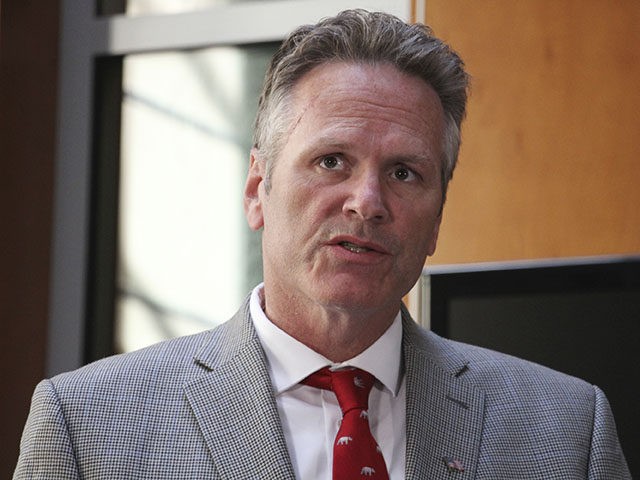Alaska has become the latest state to pursue welfare reform for those receiving food stamps, looking to make some food stamp users work a certain number of hours per week to receive benefits.
Republican Gov. Mike Dunleavy revealed Sunday that his administration wants to pursue federal work requirements for able-bodied adults receiving benefits through the Supplemental Nutrition Assistance Program (SNAP).
Dunleavy spokesman Matt Shuckerow said in a statement that the state government wanted to make the rule change “to comply with the spirit and intent” of federal law.
“SNAP is a program that is a safety net for people in their time of need, but also is a program that is clearly about encouraging participation in the workforce and self-sufficiency,” he said.
The change in policy would add the work requirements to a state that has always qualified for a waiver from the rules. While food stamp usage has reached historic lows in most of the lower 48 states over the past few years, Alaska has always remained a state that has had one of the biggest increases in SNAP usage.
Alaska had a statewide waiver that exempted able-bodied adults without dependents from the requirement to work to receive food stamp benefits, since states or parts of states with unemployment rates above ten percent could be exempt from the program.
But federal rules require most able-bodied Americans between the ages of 18 and 49 to work, volunteer, or receive some sort of job training for a minimum of 20 hours a week to receive benefits.
A representative for Dunleavy said the rule change could cause 6,900 people to drop off food stamps, but he added that the change would not cause a large amount of Americans to become ineligible for the program.
There are currently 87,920 Alaskans who receive food stamps through SNAP.
Alaska’s move to get more people off food stamps comes at a time when the Trump administration is moving in that same direction.
The U.S. Department of Agriculture (USDA) recently announced it would close a “loophole” that allows 3.1 million people who receive benefits through a program called Temporary Assistance for Needy Families (TANF) to automatically receive SNAP benefits, no matter what their income status is.
The agency is seeking to close this loophole by requiring TANF benefit recipients to go through an income background check to determine their eligibility for SNAP and exclude “broad-based categorical eligibility,” which allows those with higher incomes to partake in SNAP benefits, according to USDA officials.
There are 35,907,656 individuals currently on food stamps in the U.S., according to the latest data from the USDA from May 2019.

COMMENTS
Please let us know if you're having issues with commenting.